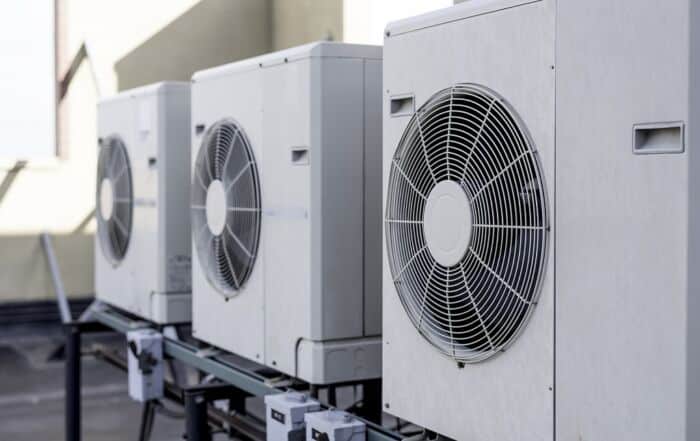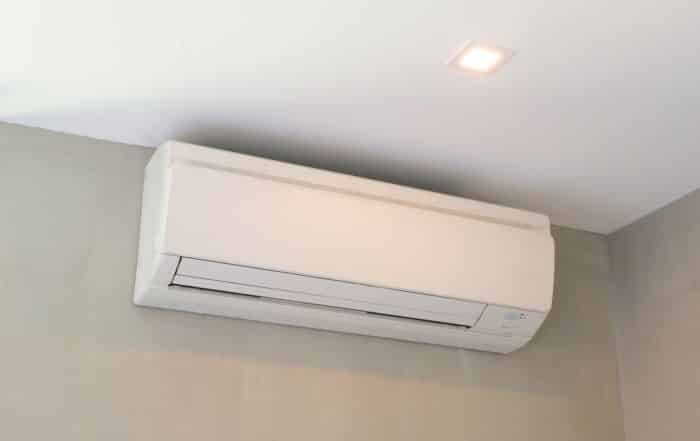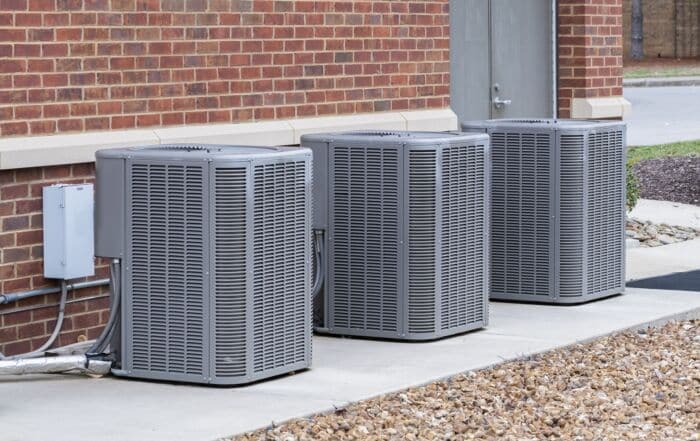Improving the efficiency of your air conditioner not only saves you money on energy bills but also ensures a longer lifespan for your system. Here at Dallas Heating and Air Conditioning, we prioritize helping you keep your home comfortable while maximizing your AC unit’s performance. Here are 10 effective ways to improve the efficiency of your air conditioner:
1. Clean and Maintain Your Vents
Dirty and dusty vents can significantly reduce your air conditioner’s efficiency. Blocked ventilation forces your AC unit to work harder, which can lead to increased energy consumption and higher bills. Regular cleaning of interior vents and ducts helps maintain smooth airflow and optimal cooling performance. It might be beneficial to schedule professional vent and duct cleaning periodically to ensure they remain in top condition.
2. Keep Air Filters Clean
Dirty air filters can severely impact your AC’s efficiency by restricting airflow and forcing the unit to work harder to cool your home. This not only decreases efficiency but also increases energy costs. Regularly cleaning or replacing air filters can resolve this issue. Depending on your AC unit, you might be able to clean the filters yourself or need a professional service. Aim to check and clean filters every month during the cooling season.
3. Use a Programmable Thermostat
A programmable thermostat allows you to set a schedule for your AC, ensuring it only runs when necessary. For example, you can set it to turn off while you’re away during the day and turn it back on just before you return home. This prevents the energy waste associated with cooling an empty house and can lead to significant savings on your utility bills.
4. Check for Ductwork Leaks
Leaking ductwork can lead to a loss of cool air, making your AC work harder to maintain the desired temperature. Over time, ducts can develop cracks or leaks, causing cool air to escape and warm air to enter the system. Regular inspections and sealing any leaks can enhance your AC’s efficiency. Consider hiring a professional to check your ductwork if you suspect leaks or notice a decrease in cooling efficiency.
5. Upgrade to an Energy-Efficient AC Unit
If your current air conditioner is old, consider upgrading to a more energy-efficient model. Look for units with the ENERGY STAR and EnergyGuide labels, which indicate higher efficiency standards. Modern air conditioners with higher Seasonal Energy Efficiency Ratios (SEER) are about 15% more efficient than standard models. Investing in a new, energy-efficient unit can provide long-term savings on energy costs and improved cooling performance.
6. Clear the Area Around Your Outdoor Unit
Debris such as leaves, branches, and tall grasses around your outdoor condenser unit can block airflow and reduce efficiency. Ensure there is at least a 2-foot clearance around the unit to facilitate proper airflow. Regularly checking and clearing debris from around the condenser unit helps maintain optimal cooling performance and prevents unnecessary strain on the system.
7. Schedule Regular Preventative Maintenance
Routine maintenance is crucial for keeping your AC system running efficiently. Professional technicians can perform comprehensive inspections, clean essential components, and address minor issues before they escalate into major problems. Regular maintenance ensures all parts are functioning correctly and helps maintain the system’s efficiency over time. Consider enrolling in a maintenance plan for consistent upkeep.
8. Provide Shade for Your Outdoor Unit
Shading your outdoor unit can reduce the strain on the system and decrease wear and tear. However, ensure that the shade does not obstruct airflow. Strategically placed trees, shrubs, or an awning can provide effective shading while allowing sufficient airflow around the unit. This can help lower the operating temperature of the unit, improving efficiency and extending its lifespan.
9. Optimize Thermostat Placement
The location of your thermostat significantly impacts your air conditioner’s efficiency. Avoid placing the thermostat in hot areas, such as near windows or lamps, as it can lead to inaccurate temperature readings and inefficient cooling cycles. Ideally, the thermostat should be placed in a central, shaded location that accurately reflects the average temperature of your home.
10. Implement Zoning Controls
Zoning controls allow you to regulate the temperature of different areas in your home independently. By dividing your home into zones and adjusting the cooling levels accordingly, you can ensure that each area receives the appropriate amount of cooling without overworking the system. This not only improves comfort but also enhances overall efficiency by preventing unnecessary cooling of unused spaces.
Additional Tips for Efficient AC Use
While the above strategies are effective, there are additional tips you can follow to maximize your AC’s efficiency:
- Use AC Only When Necessary: Open windows and use natural airflow to cool your home on milder days.
- Set the Temperature Higher: Every degree you raise the temperature on your thermostat can save on energy costs.
- Use Fans Wisely: Ceiling fans can help circulate cool air, reducing the workload on your AC. However, remember to turn off fans when leaving a room to avoid unnecessary energy use.
- Close Off Unused Rooms: Direct cool air to areas where it’s needed most by closing vents in unused rooms.
By following these tips and ensuring regular maintenance, you can keep your air conditioner running efficiently, saving money on energy bills and extending the life of your system. For professional AC maintenance, repair, or replacement services in Dallas, TX, contact Dallas Heating and Air Conditioning at (214) 710-2515. Our certified experts are here to help you achieve optimal cooling performance and comfort in your home.
Related Posts
Exploring Ductless Air Conditioning Systems for Small Spaces
If you’re a homeowner tired of sweating through sweltering summers, a ductless air conditioning [...]
Signs Your Air Conditioning Unit Needs Professional Maintenance
Imagine coming home on a sweltering summer day only to find that your air [...]
Common Misconceptions About Air Conditioning Usage and Costs
Air conditioning units are a staple in many homes, especially during the hot summer [...]


